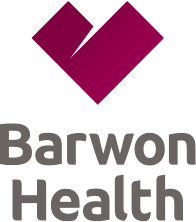How do I know I'm pregnant
The first signs
You may already know that you’re pregnant, but if not there are signs to look out for. The first sign of pregnancy tends to be missing a period, probably around two weeks after you’ve conceived. But this isn’t foolproof.
If your menstrual cycle isn’t regular you may not notice that you’ve missed a period. Some women have a bit of bleeding around the time they would have expected a period – caused by the embryo implanting itself in the womb lining – which can be confusing.
Home pregnancy tests are about 97% reliable. You can do one on the first day you should have had a period. The test measures the amount of a hormone called human chorionic gonadotropin (hCG) in your urine. This is much higher during pregnancy.
If you think you may be pregnant and your period is late, you should phone a GP practice and ask for an appointment to discuss with a GP what happens next. If you are uncertain about whether you want to continue with the pregnancy the GP will be able to provide the information and support you require to make a decision.
Other signs of early pregnancy
Even before you miss a period, you may notice changes caused by pregnancy. The changes are caused by hormones that can affect different parts of your body and the way you feel. These are some of the signs:
- Tender breasts: your breasts may feel heavy and tender as they begin to make tissue for producing and storing milk.
- Tiredness: some women feel more exhausted in early pregnancy than at any other time.
- Sickness: feeling sick can happen very early on in pregnancy, but usually after the first four weeks. It can hit at any time of the day and not just in the morning. You may also go off some foods.
- Feeling emotional: even if you really want to be pregnant, realising that you are can come as a shock – expect to feel a bit ‘up and down’. Read more about your emotions during pregnancy here.
- It’s also natural for you to have a few worries about your health and the health of your baby. You may be worrying about the birth or becoming a parent. If you’re on your own, you may be wondering how you’ll manage. Speak to the GP or midwife about your concerns.
Last Modified: Thursday, 24 December 2020
